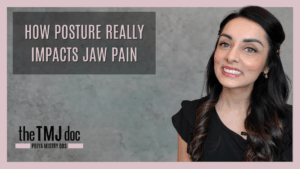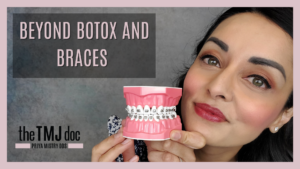Understanding Bruxism in Kids — And What to Do About It
Hearing your child grind their teeth at night can be alarming. The sound may be jarring, but what’s even more concerning is what it could mean for their health. Teeth grinding — or bruxism — in children is more common than many parents realize, and while it may seem like a phase, it often signals something deeper.
At TMJ Dental Doc in Vancouver, WA, Dr. Priya Mistry helps families get to the bottom of nighttime teeth grinding and provides customized care that supports both oral development and whole-body wellness.
What Causes Children to Grind Their Teeth?
Bruxism can show up as a response to a variety of physical or emotional stressors. While every child is different, some of the most common triggers include:
- Misaligned teeth or bite problems
- Airway restrictions or sleep-disordered breathing
- TMJ dysfunction or jaw muscle tension
- Stress, anxiety, or hyperactivity
- Earaches or teething (in younger children)
- Neurological or developmental conditions
Dr. Mistry emphasizes that bruxism is rarely “just a habit.” “It’s usually a symptom — a sign that something in the body isn’t functioning as smoothly as it should,” she says. “And in many cases, that something starts with the airway or the jaw joint.”
Signs Your Child May Be Grinding Their Teeth
If your child doesn’t grind loudly — or sleeps in another room — it might be easy to miss. In addition to the sound of grinding, watch for signs like:
- Complaints of jaw pain, headaches, or sore facial muscles
- Tooth sensitivity or worn-down teeth
- Interrupted sleep or trouble falling asleep
- Behavioral issues tied to fatigue
- Morning complaints of ear pain or “tired jaws”
- Chipped or fractured baby teeth
Left untreated, chronic grinding can lead to long-term problems like jaw growth issues, misalignment, and even early tooth loss.
The Airway-TMJ-Bruxism Connection
Dr. Mistry often sees a strong link between bruxism and airway dysfunction — especially in children who mouth-breathe, snore, or have enlarged tonsils/adenoids. When a child struggles to breathe freely at night, their body may unconsciously clench the jaw or grind the teeth in an attempt to open the airway.
That’s why treatment goes beyond just protecting the teeth. “If we don’t address the root cause, we’re just masking the symptoms,” says Dr. Mistry. Her approach includes a full evaluation of jaw development, bite alignment, airway health, and sleep quality — all crucial pieces of the puzzle.
What Can Be Done?
The good news is that early intervention can make a big difference. At TMJ Dental Doc, treatment options are personalized and may include:
- Custom oral appliances designed for growing mouths
- Guided growth strategies to promote healthy jaw development
- Collaboration with pediatric ENTs or sleep specialists
- Education on sleep hygiene and nasal breathing
- TMJ therapy and gentle myofunctional support
Dr. Mistry’s goal is to not only stop the grinding, but to support your child’s long-term health, facial development, and well-being.
Trust Your Instincts — and Get Support
If you suspect your child is grinding their teeth, don’t wait and hope it goes away on its own. Bruxism can be a warning sign, and with the right guidance, it can be addressed in a way that supports your child’s growth — not just their smile.
Serving families throughout Vancouver, WA and the greater Portland area, Dr. Priya Mistry and the team at TMJ Dental Doc are here to help your child sleep peacefully, breathe freely, and grow strong.
Call today to schedule a child-focused consultation — because a healthy jaw starts early.







